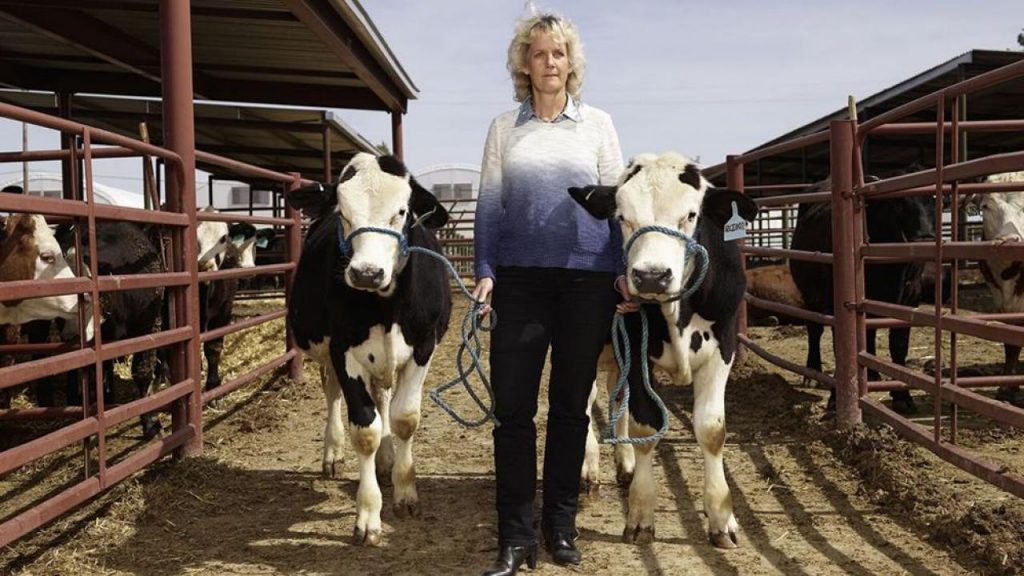This week we’re catching up with our 2014 Borlaug CAST Communication Award winner. Alison Van Eenennaam earned her B.S. in Agricultural Science at the University of Melbourne and then earned her M.S. and Ph.D. at the University of California, Davis. She is now an Extension Specialist in Animal Biotechnology and Genomics in the Department of Animal Science at UC Davis.
What does a typical day at work look like for you?

Since the coronavirus pandemic my typical day looks very different from before. As someone who runs a research laboratory and travels extensively, suddenly being locked down in the house with my college-aged boys (also newly housebound), husband, dog, cat, and a chicken is quite the lifestyle change! I have been trying to keep the laboratory work going, but it has been like pushing a rock up a hill with stay-at-home orders, shut downs, and ordering delays. I have had a lot more time to mentor my graduate students and edit papers! I think they are kind of sick of seeing my face on Zoom. Also I have been learning how to edit videos in Adobe Premiere with help from my son Alec, which has been a skill I have long wanted to master.
How has COVID-19 impacted your work?
How hasn’t it? I run a wet-bench molecular research laboratory where we do a lot culturing of cattle, sheep, goat, and pig oocytes from slaughter-house derived ovaries. Guess what has been close to impossible to access during the lockdown? Livestock ovaries! We have had a really hard time getting into processing plants since March as they struggle to keep their employees safe, which means we lost several months of research. Of course animals that were already pregnant with research pregnancies kept on gestating, and we have had a couple of exciting births during lockdown. Thanks to our livestock colleagues – exempt from COVID-19.
What’s your favorite research?
Probably when we are combining really novel molecular technologies with day-to-day cattle operations. It always amazes me going from the microscopic nature of genome editing a bovine embryo using super sensitive techniques, and then transferring it out in the cattle chute to the vagaries of the reproductive cycle of a 1500 lb cow! The element of anticipation when getting back surrogate cow pregnancy test results is exhilarating. It is really satisfying when a result comes back affirmative.
What’s your most recent research?
Well you probably heard about Cosmo from the Wired article. He is a genome-edited bull calf with extra copies of SRY, the gene that is responsible for initiating male development, knocked-in or inserted onto chromosome 17. We produced him by embryo-mediated genome editing with the CRISPR/Cas9 system. We predict he will produce 75% male offspring, but only data and experimental outcome can confirm that prediction. Stay tuned for results in a couple of years!
What’s the best piece of advice you’ve received?
Do what you love and you will never work a day in your life.
Your donation to CAST helps support the CAST mission of communicating science to meet the challenge of producing enough food, fiber and fuel for a growing population. Every gift, no matter the size, is appreciated.